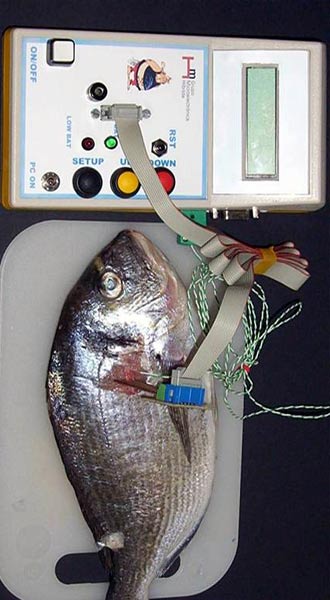Electrochemical sensors.
• Membrane electrodes
The development of potentiometric ion-selective electrodes is an area of interest. These are used in a wide range of applications for ion determination in water. They are simple, relatively economic, robust, long life and ideal methods to be used in field (in situ and at site). Furthermore, they are fast and an interesting tool for the development of environmental measuring equipments. They measure activity, instead of concentration, and the measurement is not interfered by turbidity or colour. There are a high number of ion-selective electrodes for cations and a relatively low number for anions. In the IQMA we are specially interested in the development of new ion-selective electrodes for anions using our capability of synthesis of selective organic ligands for certain anionic species. In fact, in all the published works, the ionophores are prepared by our own.
At present, we are carrying out studies addressed to develop electrodes for anions of environmental interest as phosphate and sulphate as well as to design and prepare highly selective ligands for tetrahedral anions.
• Analytical instrumentation applied to environmental control
Respect to the development of analytical instrumentation applied to environmental monitoring, we work in the design of the measurement devices for water quality control. In relation with this topic the IQMA takes the experience of several research groups in the IQMA (i) on one hand a group develops ion-selective electrodes, (ii) a second group designs electrodes at thick-film technology and the (iii) a third group develops analytical chemistry work. New equipments for monitoring are developed with customer driven application as filter systems, fish farms, etc.
• Electronic tongues and noses
The electronic tongue concept is related to electronic noses. They are based on the use of arrays of no specific sensors combined with pattern recognition technologies and allows to obtain information of complex mixtures. The electronic nose is used for gas analysis, whereas the electronic tongue does the proper in liquids. Here the strategy resides in using a sensor group with low specificity, but different towards a family of chemical compounds. In this strategy, the fundamental idea is not to analyze chemical independent compounds, but to obtain images of more general attributes (such as the quality, a certain flavour or smell, etc) common to complex systems.
Binding this concept and the chromogenic chemical sensors we are developing prototypes of "electronic eyes" for the naked-eye detection of chemical species of interest based on recognition ofsupramolecular processes.
|  |